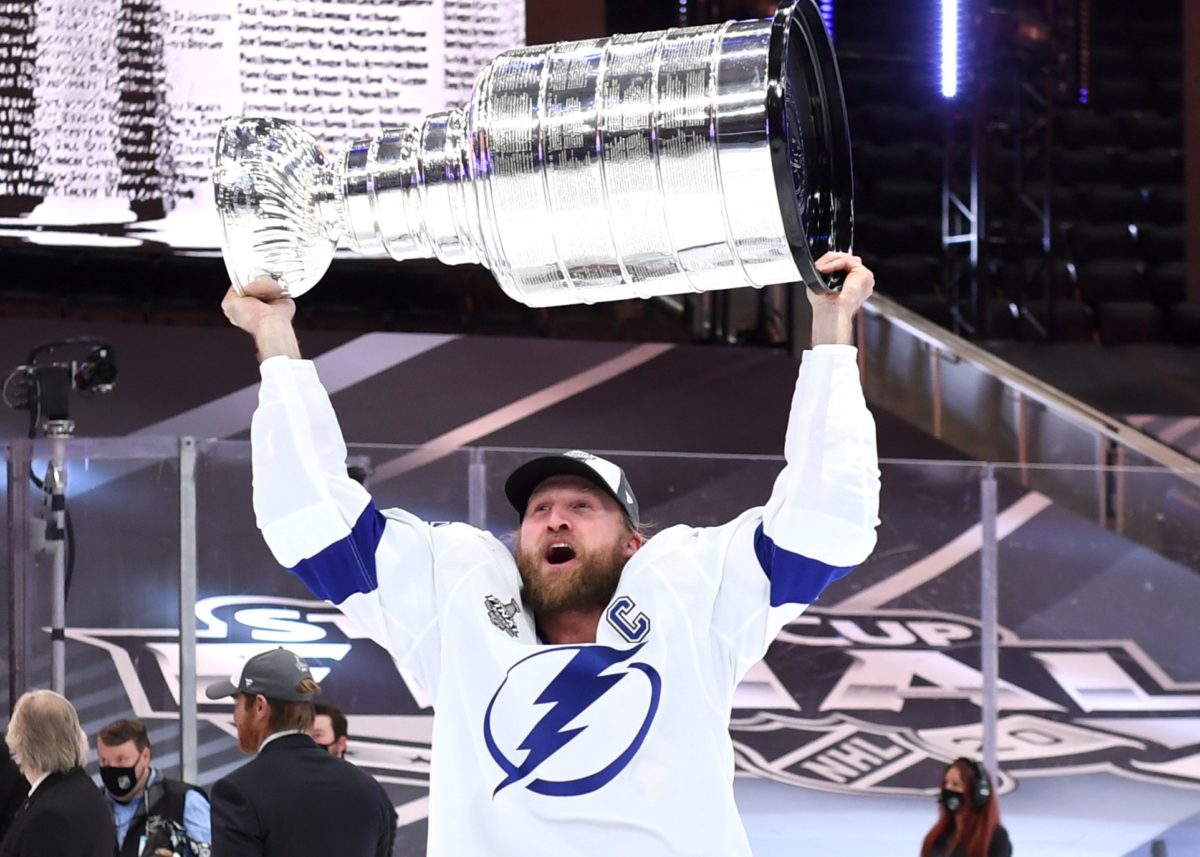This is the time of year when we get to watch the best teams play their absolute best. Great defence, strong goaltending, physicality and clutch moments are what the Stanley Cup Playoffs are built for. This is when teams on the outside can see what makes a championship team, and for the Vancouver Canucks, they can learn a lot from the 2021 Stanley Cup contenders.
Whether it’s spectacular goaltending, a star player taking a major step forward or a tight-nit group learning how to win in different ways, we’ve seen many examples of what makes a championship team. The Canucks have some pieces in place that should help their growth as early as next season, but they should also jot a few notes down and see what works and what doesn’t.
There’s More Than One Way to Win
Recently, the formula for success seemed to be: see what the Cup champs do well and emulate it as much as possible, like the Chicago Blackhawks that won championships in 2010, 2013 and 2015, and the Pittsburgh Penguins in 2009, 2016, and 2017. Each team had a cornerstone center (Johnathan Toews and Sidney Crosby), a dynamic forward (Evgeni Malkin and Patrick Kane) and that minute-eating defenseman who stepped up every season (Kris Letang and Duncan Keith). Even the Los Angeles Kings with Anze Kopitar, Drew Doughty and Jonathan Quick had a version of that trio to work with and won two championships in 2012 and 2014. These teams won for a bevy of other reasons and because of depth players who stepped up, but that seemed to be the winning recipe.

This season, we are seeing roughly four different tactics or teams built for different purposes that have made each of them successful. The Tampa Bay Lightning are built like the 2016-17 Penguins and 2010 Blackhawks with star players at forward, defence and in goal. Then we have the New York Islanders, who are a defensively sound team (outside of Game 5), who get the job done by outworking their opponent by committee. The Vegas Golden nights have a very deep group and can essentially run four lines without worry, along with a phenomenal goaltending tandem in Robin Lehner and Marc-Andre Fleury. Finally, the Montreal Canadiens, who have a similar makeup as the New York Islanders, have goaltender Carey Price to lean on when they’ve outmatched at times.
This is a lot for the Canucks to build on. Defensively, they have some work to do before they reach the Islanders’ level, or emulate the Vegas format, as secondary scoring wasn’t Vancouver’s strong suit. However, they can approach it like the Lightning’s star player format; the Canucks can roll out Elias Pettersson, Quinn Hughes, Brock Boeser, and while Thatcher Demko isn’t at Carey Price’s level, in time, he could be the goaltender that Vancouver needs to make a deep playoff run like they did a couple of seasons ago.
It’s Not a One-Man Show
Outside of riding a hot goaltender to a Stanley Cup Championship (Quick in 2012, Tim Thomas with the Boston Bruins in 2011), it’s increasingly clear that the Stanley Cup Playoffs are not a one-man show. Yes, we’ve seen some amazing performances from former Conn Smyth winners like Victor Hedman, Keith, Crosby and Patrick Kane, to name a few, but they all had help from their teammates.

In the 2021 Playoffs, all top five points leaders are members of the Lightning. The Islanders have five players with 10+ points and the Golden Knights have three players also with 10+ points. With the loss of Pettersson, Vancouver’s top point-getters were Boeser (49) J.T. Miller (46) Hughes (41) and Bo Horvat (39), all with solid numbers, but one of the team’s main struggles was secondary scoring. If the Canucks can add depth and bring in players to help ease the burden, it would be a major boost to their postseason success.
Depth Proving to Be More Valuable Than Ever
Depth has always been an integral part of postseason success, but it has never been more evident than recently. Injuries have proven that depth and players stepping up are critical to a long playoff run. Last season, the Lightning lost their captain Steven Stamkos, but Brayden Point broke out as a star playoff performer and has shown again this postseason that it was not a fluke. The Islanders are in the semi-finals for the second consecutive year, despite losing their captain Anders Lee to injury.
Teams already eliminated, like the Toronto Maple Leafs and Winnipeg Jets, showed us what happens when depth doesn’t step up. The Maple Leafs were unable to replace John Tavares, who was injured in Game 1 against the Canadiens, and the Jets were swept after their star center Mark Scheifele was suspended for four games. Vancouver’s mission should be to add players to support their core so that if Pettersson misses time like he did this season (30 games with a wrist injury), the Canucks will be better equipped to handle it.
Managing all of this is easier said than done, but from the Canucks’ point of view, they are getting a chance to different yet successful blueprints that might just help them get back into the postseason in 2021-22.